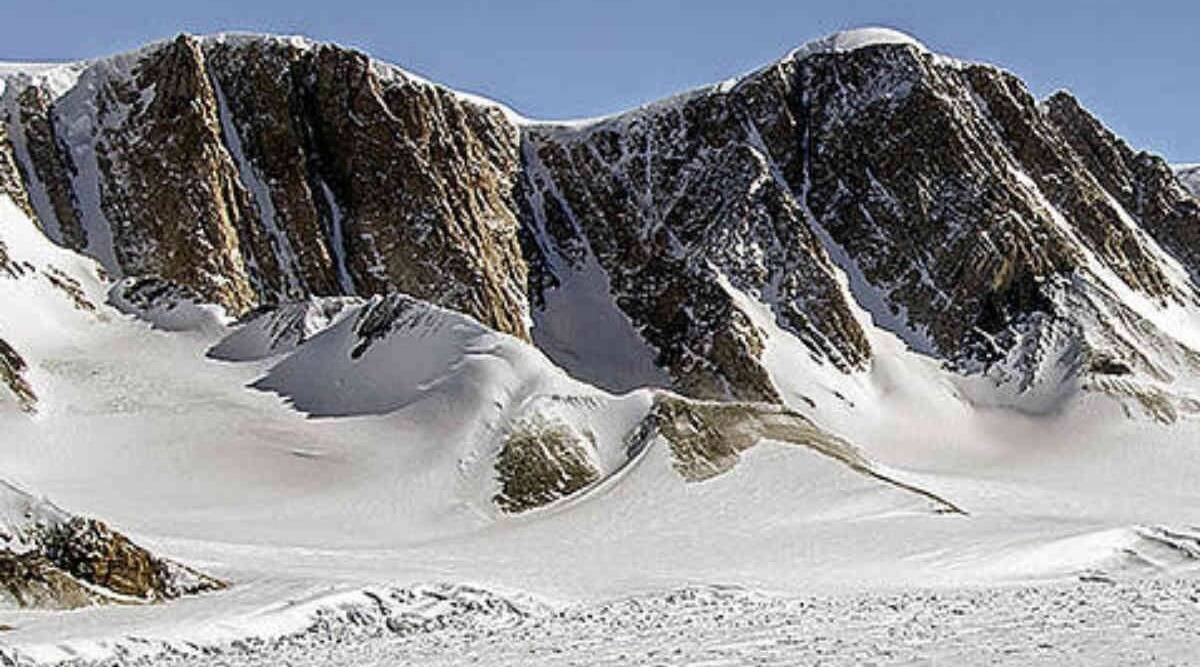Climate change leading to melting glaciers, depleting snow cover in Himalayas: IPCC report

Among the most alarming findings as laid out in the Inter-governmental Panel on Climate Change (IPCC) report released on Monday is the effect of climate change on glaciers and the snow cover in the mountains. The Sixth Assessment Report states scientists have ascertained that global warming will have a serious impact on mountain ranges across the world, including the Himalayas. The consequences are stark and dreary — the freezing level height of mountains are likely to change and snowlines will retreat over the coming decades.
The report has further said that glaciers are melting and receding across the globe, including in the Himalayas, and that this is now a phenomenon that is “locked in’” and cannot be reversed. It adds that the level of temperature rise in the mountains and glacial melt is unprecedented in 2,000 years. The retreat of glaciers is now attributed to anthropogenic factors and human influence, it states.
Retreating snowlines and melting glaciers is a cause for alarm as this can cause a change in the water cycle, the precipitation patterns, increased floods as well as an increased scarcity of water in the future in the states across the Himalayas.
The report also predicts the increased likelihood of incidents such as the landslide caused by glacial break on Nanda Devi at Chamoli in Uttarakhand earlier this year that caused floods in the region. “Extreme precipitation is projected to increase in major mountainous regions with potential cascading consequences of floods, landslides and lake outbursts in all scenarios,” states the report.
Dr Friederike Otto, who is the Associate Director of the Environment Change Institute, University of Oxford and one of the authors of the report, said, “Human influence has been responsible for the retreat of mountain glaciers in the 20th century. Glaciers are one of the slowest responding parts of the climate system. The retreat of glaciers being seen now are a result of the actions of the past and not an immediate effect. So even if we were to stop emissions right now, we should expect to see the continued retreat of glaciers over the coming decade. Of course, if its business as usual and emissions are not curtailed, this retreat will be even faster. This retreat of glaciers in the Himalayas is a matter of great concern as it will affect the availability of fresh water in the region.”
IPCC’s assessment has found that the freezing level height in mountain areas is projected to rise and this will alter the snow and ice conditions.
A rise in temperature has been recorded in the Himalayas, the Swiss Alps and the central Andes, and this has increased with altitude. Such elevation-dependent warming could lead to faster changes in the snowline, the glacier equilibrium-line altitude and the snow/rain transition height.
With a few exceptions, mountain glaciers have retreated since the second half of the 19th century. This retreat has occurred at increased rates since the 1990s, with human influence very likely being the main driver. Furthermore, the report states that glaciers will continue to lose mass at least for several decades even if global temperature is stabilised.
Global warming has induced the earlier onset of spring snowmelt, with the increased melting of glaciers having already contributed to seasonal changes in streamflow in low-elevation mountain catchments. Mountain glaciers will continue to shrink and permafrost to thaw in all regions where they are present, the report states. Moreover, mountain glaciers are projected to lose more mass in higher greenhouse gas emissions scenario over the 21st century.
It is also virtually certain that the snow cover will decline over most land regions during the 21st century, in terms of water equivalent, extent and annual duration, the report added.
According to the predictions, the projected runoff is typically decreased by contributions from small glaciers because of glacier mass loss, while runoff from larger glaciers will generally increase with increasing global warming levels until their mass becomes depleted. All of these changes will pose significant challenges for water supply, energy production, ecosystems integrity, agricultural and forestry production, disaster preparedness and ecotourism.

“평생 사상가. 웹 광신자. 좀비 중독자. 커뮤니케이터. 창조자. 프리랜서 여행 애호가.”
